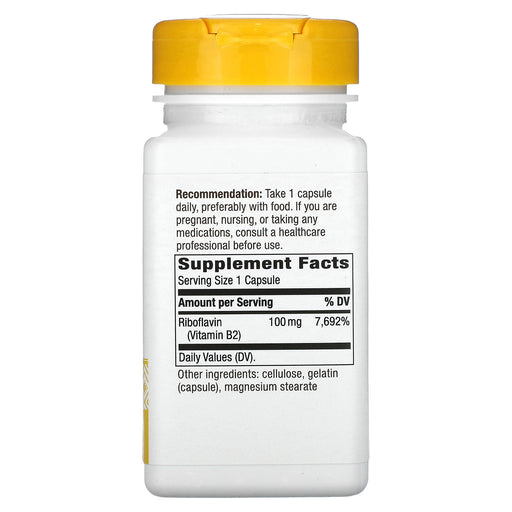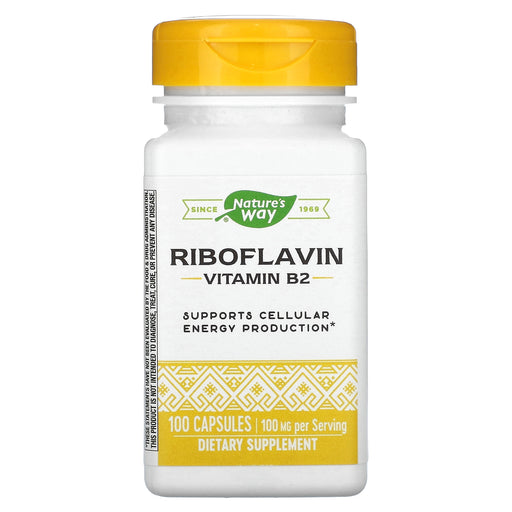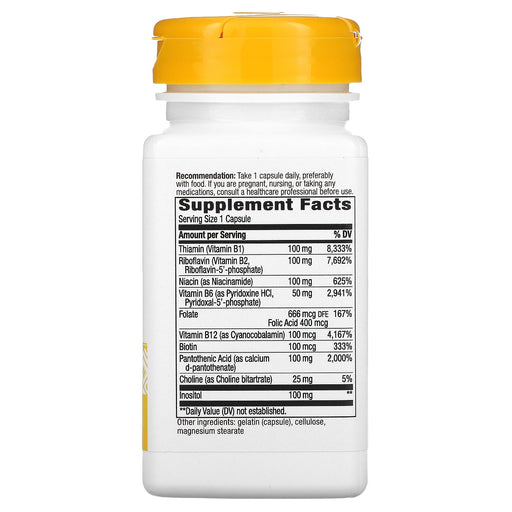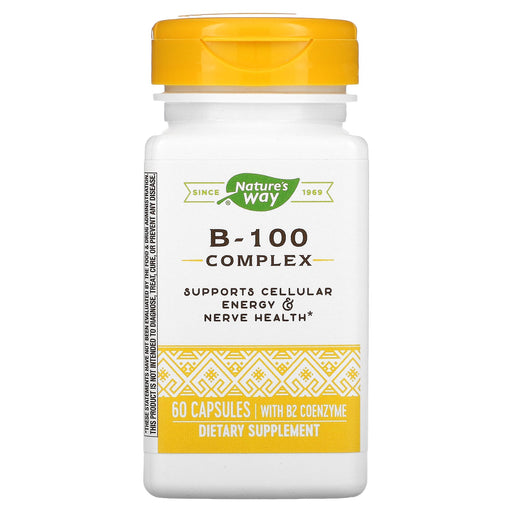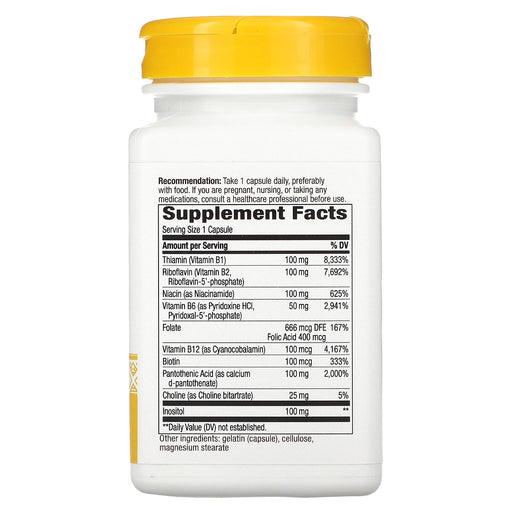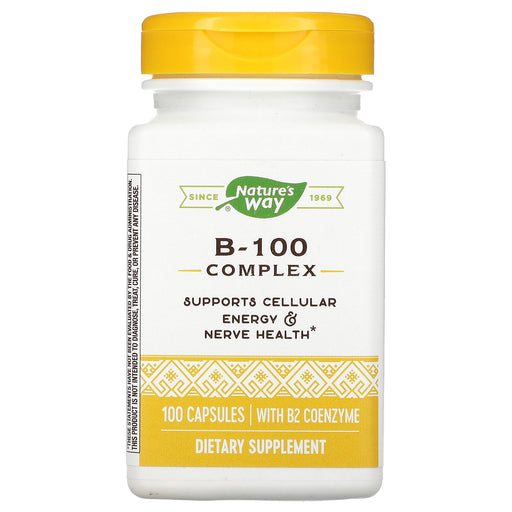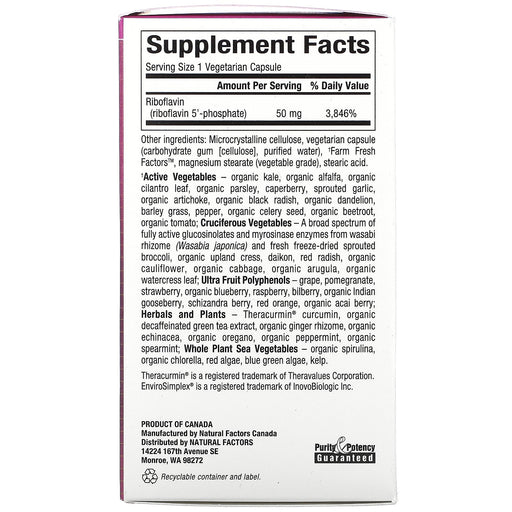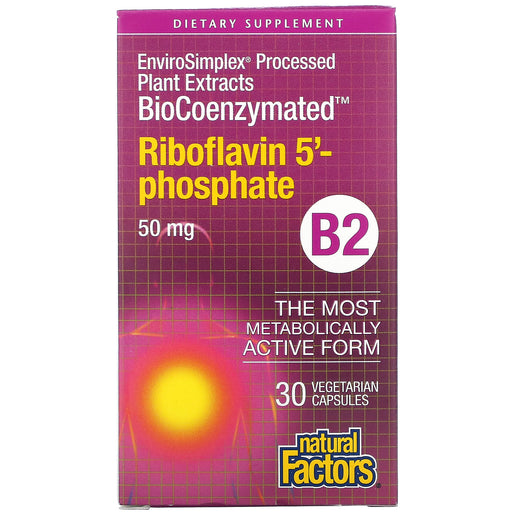
Illuminate Your Health with the Power of Vitamin B2 (Riboflavin)
Vitamin B2, also known as riboflavin, is an essential water-soluble nutrient that plays a vital role in various metabolic processes, energy production, and overall health maintenance. As a key member of the B-complex family, vitamin B2 works synergistically with other nutrients to support optimal functioning of the body's systems. At Health Orchard, we offer a carefully curated selection of high-quality vitamin B2 supplements, empowering you to harness the multifaceted benefits of this crucial nutrient.
The Importance of Vitamin B2: A Closer Look at Its Vital Functions
Vitamin B2 is a powerhouse nutrient that contributes to numerous physiological processes essential for health and well-being. Some of the key functions of vitamin B2 include:
- Energy Metabolism: Vitamin B2 serves as a critical cofactor for enzymes involved in the metabolism of carbohydrates, fats, and proteins, facilitating the conversion of these macronutrients into usable energy (ATP). By supporting efficient energy production, vitamin B2 helps combat fatigue, boost vitality, and fuel the body's daily functions.
- Antioxidant Protection: Vitamin B2 plays a crucial role in the body's antioxidant defense system, particularly in the regeneration of glutathione, a master antioxidant that helps neutralize harmful free radicals and protect cells from oxidative stress. By supporting antioxidant activity, vitamin B2 contributes to the maintenance of healthy tissues and the prevention of chronic diseases.
- Cellular Growth and Function: Vitamin B2 is involved in the synthesis and repair of DNA, RNA, and proteins, making it essential for proper cellular growth, development, and function. Adequate vitamin B2 intake supports the health and regeneration of skin, hair, nails, and other tissues throughout the body.
- Eye Health: Vitamin B2 is particularly important for maintaining the health of the eyes, as it is a key component of the retina's light-sensitive cells and supports visual function. Adequate vitamin B2 intake may help reduce the risk of age-related eye disorders, such as cataracts and macular degeneration.
- Nervous System Support: Vitamin B2 is involved in the production of neurotransmitters, the chemical messengers that facilitate communication between nerve cells. By supporting healthy neurotransmitter levels and function, vitamin B2 contributes to optimal cognitive performance, mood regulation, and overall nervous system health.
Signs and Symptoms of Vitamin B2 Deficiency
While severe vitamin B2 deficiency is relatively rare in developed countries, mild to moderate deficiencies can occur due to various factors, such as poor dietary intake, malabsorption disorders, or increased nutritional demands. Some common signs and symptoms of vitamin B2 deficiency include:
- Fatigue and weakness
- Oral health issues, such as cracked lips, mouth sores, or a swollen, red tongue
- Skin problems, including dryness, cracking, or dermatitis
- Eye irritation, sensitivity to light, or burning sensations
- Anemia, as vitamin B2 is necessary for iron metabolism and red blood cell production
- Nervous system symptoms, such as numbness, tingling, or reduced sensation in the extremities
Certain individuals may be at a higher risk for vitamin B2 deficiency, including:
- Vegetarians and vegans, as the richest sources of vitamin B2 are animal-based foods
- Pregnant and breastfeeding women, who have increased nutritional demands
- Individuals with malabsorption disorders, such as celiac disease or inflammatory bowel disease
- Those with alcohol use disorder, as alcohol can interfere with vitamin B2 absorption and utilization
- Individuals taking certain medications, such as antidepressants or antipsychotics, which may deplete vitamin B2 levels
The Benefits of Vitamin B2 Supplementation
While it's always best to obtain nutrients from a balanced diet rich in whole foods, vitamin B2 supplements can be beneficial for individuals who may not be meeting their daily requirements or those with increased needs. Some of the potential benefits of vitamin B2 supplementation include:
- Boosting Energy and Vitality: By supporting efficient energy metabolism and ATP production, vitamin B2 supplements can help combat fatigue, increase stamina, and promote overall vitality, making it easier to tackle daily tasks and maintain an active lifestyle.
- Supporting Antioxidant Defenses: Vitamin B2 supplements can help bolster the body's antioxidant capacity, particularly by regenerating glutathione, a key antioxidant that protects cells from oxidative stress and damage. This may help reduce the risk of chronic diseases and support overall health and longevity.
- Promoting Healthy Skin, Hair, and Nails: Adequate vitamin B2 intake is crucial for the health and appearance of skin, hair, and nails, as it supports cellular growth, repair, and regeneration. Vitamin B2 supplements may help improve skin elasticity, reduce inflammation, and promote a youthful, radiant complexion.
- Supporting Eye Health: Vitamin B2 supplements can help maintain the health and function of the eyes, particularly the light-sensitive cells in the retina. Regular supplementation may help reduce the risk of age-related eye disorders and support overall visual function and acuity.
- Enhancing Cognitive Function and Mood: By supporting neurotransmitter production and nervous system health, vitamin B2 supplements may help improve cognitive performance, memory, and mood regulation. This can be particularly beneficial for individuals experiencing stress, mental fatigue, or age-related cognitive decline.
Choosing the Best Vitamin B2 Supplement for Your Needs
When selecting a vitamin B2 supplement, it's essential to choose a high-quality product from a trusted source. At Health Orchard, we've done the hard work for you, curating a selection of the best vitamin B2 supplements on the market, each rigorously tested for purity, potency, and safety.
Here are some factors to consider when choosing a vitamin B2 supplement:
- Form: Vitamin B2 supplements are available in various forms, including tablets, capsules, and liquids. Consider your personal preferences and any specific absorption needs when selecting the best form for your lifestyle.
- Dosage: The recommended daily allowance (RDA) for vitamin B2 varies by age and gender, with adult men requiring 1.3 mg per day and adult women needing 1.1 mg per day. However, some individuals may benefit from higher doses, particularly those with increased needs or deficiencies. Consult with a healthcare professional to determine the optimal dosage for your individual needs.
- Brand Reputation: Choose vitamin B2 supplements from reputable brands with a history of producing high-quality, effective products. Look for brands that prioritize transparency, third-party testing, and adherence to Good Manufacturing Practices (GMP) to ensure the highest standards of quality and safety.
- Synergistic Nutrients: Some vitamin B2 supplements may include other B-complex vitamins or synergistic nutrients that work together to enhance the overall benefits. Consider a comprehensive B-complex supplement or a formula that includes supportive nutrients like vitamin B1, vitamin B3, or vitamin B6 for a more well-rounded approach.
- Allergen-Free and Non-GMO: If you have specific dietary restrictions or preferences, look for vitamin B2 supplements that are free from common allergens, such as gluten, dairy, or soy, and those that are derived from non-GMO sources.
Maximizing the Benefits of Vitamin B2 Supplementation
To get the most out of your vitamin B2 supplement, consider the following tips:
- Take with Food: Vitamin B2 is best absorbed when taken with a meal, as it is a water-soluble nutrient that requires the presence of other nutrients and enzymes for optimal utilization. Taking your supplement with food can also help reduce the risk of digestive discomfort.
- Pair with a Balanced Diet: While vitamin B2 supplements can help fill nutritional gaps, they should not replace a balanced diet rich in whole foods. Focus on consuming a variety of nutrient-dense foods, including lean meats, fish, eggs, dairy products, leafy greens, and whole grains, to ensure an adequate intake of vitamin B2 and other essential nutrients.
- Consider Timing: Some individuals may find that taking vitamin B2 in the morning helps support energy levels and cognitive function throughout the day, while others may prefer taking it with dinner for a more restful sleep. Experiment with different timing to find what works best for your body and lifestyle.
- Be Consistent: The benefits of vitamin B2 supplementation are best achieved through consistent, daily use over time. Incorporate your supplement into your regular routine, taking it at the same time each day for optimal results.
- Store Properly: To maintain the potency and stability of your vitamin B2 supplement, store it in a cool, dry place, away from direct sunlight and moisture. Avoid exposing your supplements to extreme temperatures or humidity, which can degrade the active ingredients over time.
Experience the Illuminating Power of Vitamin B2 Supplements from Health Orchard
At Health Orchard, we're dedicated to providing you with access to the highest-quality vitamin B2 supplements available, empowering you to take control of your energy, vitality, and overall well-being. Our carefully curated selection offers a range of potencies and formats, ensuring that you find the perfect supplement to meet your unique needs and preferences.
Whether you're looking for supplements to boost energy levels, support antioxidant defenses, promote healthy skin and eyes, or enhance cognitive function, our vitamin B2 supplements provide the essential nutrition you need to thrive. With our unwavering commitment to quality, transparency, and your success, you can trust Health Orchard to be your partner in optimal health.
Experience the transformative power of this vital nutrient and witness the difference that premium, science-backed vitamin B2 supplementation can make in your life. Shop our collection today and take the first step towards illuminating your health and unleashing your body's full potential for vibrant energy, radiant beauty, and optimal well-being.
Frequently Asked Questions about Vitamin B2
1. What is vitamin B2 good for?
Vitamin B2, also known as riboflavin, offers numerous health benefits and plays a crucial role in various bodily functions:
- Energy production: Helps convert nutrients (carbohydrates, fats, and proteins) into energy (ATP) for the body's cells
- Antioxidant properties: Acts as an antioxidant, protecting cells from oxidative stress and damage caused by free radicals
- Cellular growth and development: Supports the growth, development, and function of cells throughout the body
- Metabolism support: Aids in the metabolism of carbohydrates, fats, and proteins, ensuring proper nutrient utilization
- Eye health: Maintains the health of the eyes, particularly in preventing cataracts and reducing the risk of age-related macular degeneration (AMD)
- Skin health: Promotes healthy skin, maintaining its integrity and reducing inflammation
- Nervous system function: Supports the proper functioning of the nervous system, aiding in nerve cell communication and neurotransmitter synthesis
- Hormone production: Assists in the production and regulation of hormones, such as thyroid hormones and adrenal hormones
- Migraine prevention: May help reduce the frequency and severity of migraines in some individuals
2. What foods are high in B2?
Vitamin B2 can be found in a variety of food sources, including:
- Organ meats: Liver and kidney
- Lean meats: Beef, pork, and lamb
- Poultry: Chicken and turkey
- Fish: Salmon, tuna, and cod
- Eggs: Particularly egg whites
- Dairy products: Milk, yogurt, and cheese
- Leafy green vegetables: Spinach, kale, and collard greens
- Legumes: Soybeans, beans, and lentils
- Nuts and seeds: Almonds, sunflower seeds, and quinoa
- Mushrooms: Cremini and shiitake
- Fortified foods: Cereals, bread, and pasta
3. What is vitamin B2 deficiency?
Vitamin B2 deficiency, also known as ariboflavinosis, occurs when the body does not get enough riboflavin from the diet or cannot absorb it properly. While rare in developed countries, B2 deficiency can cause various symptoms and health problems:
- Mouth and throat issues: Cracks and sores at the corners of the mouth (angular cheilitis), swollen and sore throat, and a magenta-colored tongue
- Skin problems: Scaly, greasy, and itchy skin, particularly around the nose, mouth, and genital areas
- Eye disorders: Bloodshot eyes, sensitivity to light, burning, and itching sensations in the eyes
- Anemia: A decrease in red blood cells, leading to fatigue, weakness, and shortness of breath
- Nervous system issues: Numbness, tingling, or burning sensations in the hands and feet
Groups at higher risk of vitamin B2 deficiency include:
- Vegans and vegetarians: As the richest sources of B2 are animal-derived foods
- Pregnant and breastfeeding women: Due to increased nutrient demands
- People with digestive disorders: Conditions like celiac disease or inflammatory bowel disease can impair nutrient absorption
- Alcoholics: Alcohol interferes with B2 absorption and metabolism
- Elderly individuals: Due to decreased absorption and dietary intake
If you suspect a vitamin B2 deficiency, consult a healthcare provider for proper diagnosis and treatment. Addressing the underlying cause and ensuring adequate B2 intake through diet or supplements can help prevent and manage deficiency symptoms.
4. What is vitamin B2 medicine for?
Vitamin B2 (riboflavin) supplements and medications are primarily used to:
- Treat and prevent vitamin B2 deficiency: In cases of inadequate dietary intake, malabsorption, or increased nutrient requirements
- Manage certain health conditions: Such as migraines, cataracts, and anemia
- Support overall health and well-being: By ensuring optimal levels of riboflavin for various bodily functions
In some cases, healthcare providers may recommend higher doses of vitamin B2 for specific therapeutic purposes:
- Migraine prophylaxis: High-dose riboflavin (400 mg/day) has been shown to reduce the frequency and severity of migraines in some individuals
- Cataract prevention: Adequate B2 intake may help prevent or slow the progression of cataracts, particularly in combination with other antioxidants
- Anemia treatment: Riboflavin supplements may be used in conjunction with other treatments for certain types of anemia, such as iron-deficiency anemia
5. Who needs vitamin B2 supplements?
While most people can obtain sufficient vitamin B2 through a balanced diet, some individuals may benefit from supplements:
- Vegans and vegetarians: As the richest sources of B2 are animal-derived foods, these individuals may need to supplement to ensure adequate intake
- Pregnant and breastfeeding women: Due to increased nutrient demands, these women may require supplements to meet their heightened B2 needs
- Elderly individuals: Older adults may have decreased absorption and dietary intake of B2, making supplements beneficial
- People with digestive disorders: Conditions like celiac disease or inflammatory bowel disease can impair nutrient absorption, necessitating supplementation
- Alcoholics: Chronic alcohol use can interfere with B2 absorption and metabolism, increasing the risk of deficiency
- Individuals with genetic disorders: Certain genetic disorders, such as the MTHFR gene mutation, may affect riboflavin metabolism and require supplementation
- People taking certain medications: Some medications, such as antipsychotics and tetracycline antibiotics, can interfere with B2 absorption or increase its excretion
6. What are the side effects of taking vitamin B2?
Vitamin B2 (riboflavin) is generally well-tolerated, and side effects are rare when consumed in recommended amounts. However, high doses of B2 supplements may cause some adverse effects:
- Bright yellow urine: This is a harmless side effect caused by the excretion of excess riboflavin and is not a cause for concern
- Digestive issues: High doses may lead to digestive discomfort, such as nausea, diarrhea, or stomach cramps
- Allergic reactions: In rare cases, some people may experience an allergic reaction to riboflavin supplements, with symptoms such as itching, rash, or swelling
- Headache: Some individuals may experience headaches when taking high doses of B2
- Numbness and tingling: In very rare instances, high doses of riboflavin have been associated with numbness and tingling sensations in the extremities
7. Is it safe to take vitamin B2 every day?
Yes, it is generally safe to take vitamin B2 (riboflavin) supplements every day, as long as you adhere to the recommended daily allowance (RDA) or follow the advice of a healthcare professional. The RDA for vitamin B2 varies by age, sex, and pregnancy/lactation status:
- Adult men (19+ years): 1.3 mg/day
- Adult women (19+ years): 1.1 mg/day
- Pregnant women: 1.4 mg/day
- Breastfeeding women: 1.6 mg/day
As with any supplement, it's always best to consult with a healthcare provider before starting a daily regimen, especially if you have pre-existing health conditions or concerns.
8. How long can I take vitamin B2?
Vitamin B2 (riboflavin) can be taken long-term without significant risk when consumed in recommended amounts. As a water-soluble vitamin, riboflavin is not stored in large quantities in the body, and excess amounts are excreted through urine. This means that a regular, adequate intake of vitamin B2 is necessary to maintain optimal levels for various bodily functions.
Long-term use of riboflavin supplements is often recommended for individuals with certain conditions, such as:
- Migraine prophylaxis: High-dose riboflavin (400 mg/day) has been shown to reduce the frequency and severity of migraines in some individuals, and long-term use may be necessary for ongoing benefits
- Cataract prevention: Adequate B2 intake over an extended period may help prevent or slow the progression of cataracts
- Digestive disorders: People with conditions like celiac disease or inflammatory bowel disease may require long-term B2 supplementation to compensate for impaired nutrient absorption
However, it's crucial to follow the recommended dosage guidelines and consult with a healthcare provider for personalized advice, especially if you have pre-existing health conditions or are taking medications that may interact with the supplement. Regular check-ups and monitoring can help ensure the long-term safety and effectiveness of vitamin B2 supplementation.


